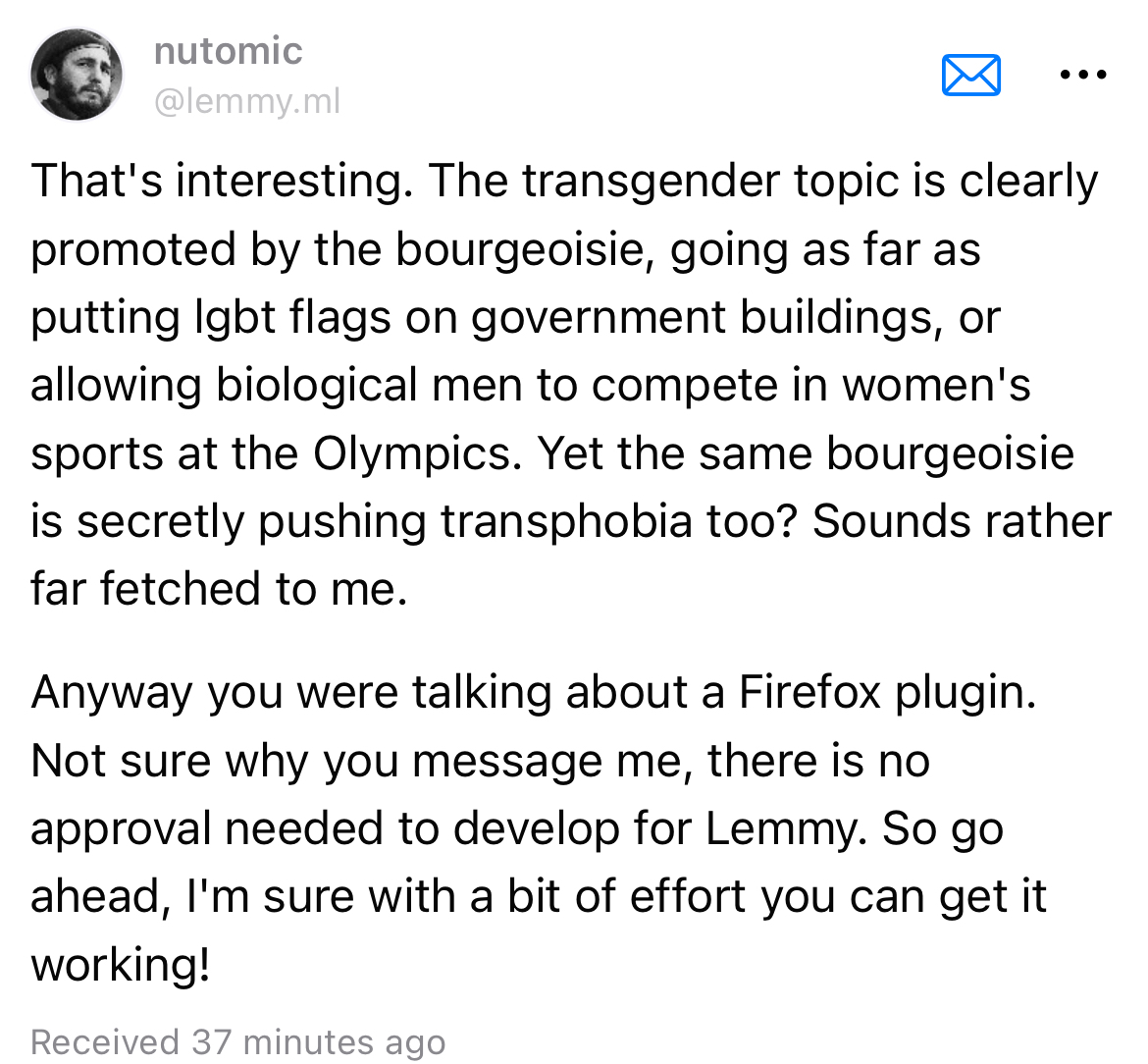What FOSS projects are most in need of funding? I’d like to help if I can.
I’m also looking for projects only related to FOSS, or “in-the-spirit” of FOSS.

It was just attacked by hackers a few months ago, no to mention all the lawsuits they’ve been getting, and cost of maintenance of TERABYTES of data. They really need the funding to survive.
Edit: Missed the FOSS part, but still, its worth mentioning. archive.org is not an open source software, but they are a non-profit doing something that benefits all of us. And they are transparent about how they operate. More like a “Free and Transparent Community Service”, rather than “FOSS”. And not to mention, the many FOSS software they could preserve in case they stop getting maintained, so they could get picked up later, and not be forever lost. It goes hand-in-hand with the philosophy of FOSS: benefiting society.

Pretty sure the internet archive is dealing with Petabytes, if not Exabytes.

Yea, I have terabytes of data in my closet

One thing I found the hard way is that majority of backends for imagick, the suite that powers almost every file conversion and manipulation you see on the internet, are maintained by, at most, one person, if not abandoned completely. I’d say that’d be a good one to donate to, and from which most people would benefit from.

damn for real? With how much imagick is used I imagined it had some real backing

I don’t know if it needs funding but I think a good contender for the project referenced in the comic is NTP the Network Time Protocol. It’s used in almost every computer in existence. Syncing up times over an unreliable network is an incredibly hard problem and basically only one person on the planet knows exactly how it works. And he’s set to retire. Or maybe he’s already retired. Been a while since I’ve read about that.

And he’s set to retire. Or maybe he’s already retired. Been a while since I’ve read about that.
David Mills is dead, but there are other people.

Bash is mantained by only one guy named Chet and almost all linux devices in the world use it. https://www.gnu.org/software/bash/

Doesn’t look like there is a way to donate to him?

To be fair, he’s got a day job as an IT architect in an university, so I think he’s set in regards to finances. Codevelopers on the other hand, those would come handy - especially for knowledge transfer

I donate to the one I’m using right now: https://join-lemmy.org/donate

 the main dev is a transphobe, no thanks. I don’t know how they expect to get donations if they say stuff like that. Perhaps donate to sunaurus instead.
the main dev is a transphobe, no thanks. I don’t know how they expect to get donations if they say stuff like that. Perhaps donate to sunaurus instead.
Same here on my instance lemmy.ca

Not money per se, I believe more hands are necesary to assist/succeed Werner Koch. He is doing a critical task for the internet, and last I read, he is the only one on it.

wikipedia

brings massive amounts of information to the public, worldwide, in almost every language, for free without advertisements

They have massive funds, a few years ago I researched both the worldwide and (my) national wiki foundation. Very transparent. So just don’t expect your money going to the text based wiki (which is smaller than a TB btw).
They will probably invest in wiki related projects like wikimedia, wiktionary and so on.
Here’s a few I can think of (without knowing whether or not they desperately need it):
- Debian
- Arch Linux
- Anna’s Archive
- FSF
- Libreboot

If you have a solid torrent setup and a few hundred GBs of free space, you can support Annas Archive by seeding big chunks of the books.

LibreOffice or other open source office suites. Rich word processors, spreadsheet, and slideshow software are seldom thought about but extremely important in the information age, and the duopoly of Microsoft and Google would like nothing more than to see the open source alternatives die so they can take full control of your documents.
Especially if you use Linux as a daily driver: KDE, GNOME, XFCE, Lxqt, other desktop environments. Unless you know how to do everything from the command line, they’re probably the things allowing you to use Linux at all. Think about how much funding Windows or Mac development gets, that’s because making a full graphical shell and suite of up to date system apps is difficult as fuck and they’re massive codebases that require constant maintenance. One could even argue that their development and maintenance is a bigger undertaking than the Linux kernel itself yet most Linux users never think about them, nor do they have the backing of large companies like the kernel does because pretty much all of them use Windows on their workstations even if their server infrastructure runs Linux. And high quality graphical environments are absolutely critical if we’re ever to have hope of Linux being adopted by the general public and not just developers and power users. If you use Linux as your main OS and have the cash to spare, considering tossing even a quarter of the cost of a Windows license you didn’t buy to your DE of choice and do your part in ensuring that DE stays usable in the future.

Some ideas
- Gimp
- Blender
- Godot
- Tenacity
- Inkscape
- Signal Desktop
- GrapheneOS
- LibreOffice
- KDE
- Codeberg

OpenSSL?

Hello, you might be interested to this post I loved and enjoyed to read: https://www.arscyni.cc/file/take_my_money.html

This is an interesting approach that needs wide exposure.

Cool blog post, thanks for sharing.
There are a few nitpicks in my opinion (e.g. the uBlock Origin page hints to donate to list maintainers or at least that’s the message I got, K-9 Mail has a relationship with Thunderbird Mail and so I believe donations are possible, I think rule 4 is too strict by disallowing any project where cryptocurrency donations are an option because despite its issues the main ones are legitimate ways of donating to projects without giving personal data to other corporations like PayPal/Stripe/etc.) so I would use this blog as a useful exploration rather than an ultimate who-to-donate-to guide.
I’m glad they didn’t just stop at the number and went on to explore scale and that being able to donate an impactful amount for more than a few tools is a privilege. While I disagree that UBI is a realistic solution (it’s a reformist coping mechanism) or that taxes are likely to go towards this kind of critical infrastructure, it’s great to see the discussion was brought up and integrated, alongside critique of so-called philanthropy.
Also, I’ve never seen the yin-yang symbol used as a light/dark mode button, I really like that.

Octoprint (web interface for 3d printers) is one of my favorite open source projects

I’m glad to hear that’s still going. I used that a lot a decade ago!

Don’t know if my contributions are best (or can be placed under these lists) but they are ones I enjoy and appreciate
- LibreOffice
- Wikipedia
the fediverse instance that I use and want to support

- Are they useful and/or essential for you/your causes?
- Is their funding model transparent?
- Do they need more funds to hit their financial goal for sustaining themselves?
If all answers are “yes”, donate to them.

